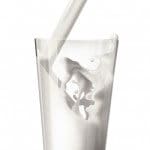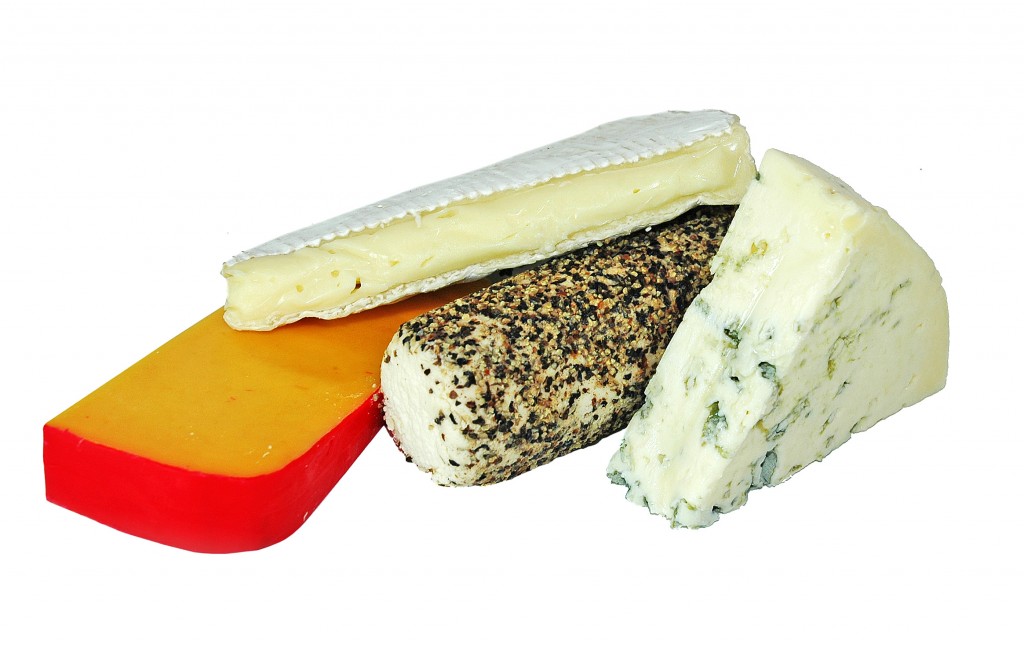If you are like me and have had milk and dairy products all your life and now all of a sudden you have IBS and are also lactose intolerant, does it mean that you have to give up dairies all together?
Not necessarily, as apparently lactose intolerant individuals can sometimes still eat and drink small amount of lactose, without having any symptoms, it depends on their degree of intolerance.
What is lactose intolerance?
Lactose is a form of natural sugar in milk and in most dairy products. Our small intestine produces an enzyme called lactase, which is meant to help us digest that sugar. Some people are born with the inability to produce the enzyme lactase, others become lactose intolerant when they are older, as their body stops making enough lactase to digest lactose. In some cases people become intolerant after a gastrointestinal infection or a surgery.
For some people it’s ok to have a little bit of dairy, for others none at all, before they start to have symptoms like cramps, nausea, bloating, diarrhea.
It is considered to have lactose intolerance when you have either a lactase deficiency or a lactose malabsorption, which cause digestive symptoms.
To avoid those symptoms, some people choose to take the lactase enzyme in a tablet or liquid form while consuming milk or milk products.
Lactase deficiency can be divided in three different types: primary, secondary or congenital lactase deficiency.
- Primary lactase deficiency is the most common cause of lactose intolerance, it affects adult and it’s genetic, affecting more certain ethnic group than others (most prevalent in East Asians descent)
- Secondary or acquired lactase deficiency can develop through illness, an injury to the small intestine, surgery or certain medication
- Congenital lactase deficiency happens in rare cases and affects babies from birth who can’t even digest breast milk (most common in Finland)
Lactose intolerance is not the same as a milk allergy.
Lactose intolerance is not the same as milk allergy. The first one is a disorder within the digestive tract, while milk allergy can be more serious, even life threatening, as a person’s immune system reacts to the milk protein(s).
What is the link between lactose intolerance and IBS?
Not all individuals with IBS have lactose intolerance, but for some, the lactose contained in dairy can trigger IBS symptoms. In other cases people with IBS suffer those symptoms even if they consume dairy products that are lactose free or have reduced lactose content.
This is why people who suffer from IBS are initially encouraged to eliminate all milk and dairy products, to see what type of intolerance they have. An Hydrogen Breath Test, could also be recommended.
I have IBS and I am lactose intolerant do I need to give up all dairies?
The good news is that most people who suffer from Irritable Bowel Syndrome and are lactose intolerant, can still enjoy some dairy products, like hard and aged cheeses and of course all lactose
free (or lactose reduced) products. The low FODMAP app from Monash University has listed the most common types of cheeses and dairy products, so if you are not sure if you should or shouldn’t consume a specific food, you can check on the app, which is available for both iPhones and androids.
What Milk Is OK in the low FODMAP diet?
In the western world we are big consumers of milk and milks’ products. Most of us have been conditioned since we were little children that milk is the best drink, that is good for our bones, because its calcium content and has proteins, vitamin D etc.
No matter how you feel about milk, if you are lactose intolerant, which a lot of IBS sufferers are, you should avoid normal cow’s milk, and instead consume alternatives like lactose free milk, soy, rice, almond, coconut milk, etc.
I will write another post on the differences and the properties of all these low FODMAPs milks, please stay tuned.
Until next time, take good care.
xo
Larah




Thanks, i guess i can not take products made with milk, i will download the low FODMAP app for android and see what is has to offer
Hi Christine, the low FODMAP app will give you a list of food that is low, medium or high in FODMAPs. It is very useful, especially when you are first trying to stay away from food that can cause you IBS symptoms. All the best.
Really informative post!
I appreciate your feedback. I am in the process of writing another post, about different types of lactose free milk, come back soon!
Luckily I am not lactose intolerant, but I keep my dairy consumption low anyway, just to be on the safe side. I have friends who have IBS and are lactose intolerant, so I’m looking forward to seeing what findings you have on milk alternatives.
Hi Stephanie, thanks for your comment. I have just wrote a post on low FODMAP lactose free milk alternative feel free to pass it on to your friends. All the best to you.
We are so lucky to have the alternate food products that are available these days. I actually like the almond milk, and think the dark chocolate sorbet you mentioned sounds great. I can’t imagine what it would have been like to suffer from this disease in pioneer times etc. I guess that’s something to be thankful anyway. Look on the bright side right?
I am quite happy with drinking lactose free milk and also almond and coconut milk. I have replaced ice cream with sorbet (occasionally), which reminds me I haven’t had one for ages…I think today it will be a good day to get one 😀
I myself have no problems with consuming lactose (yet!) but I know all of this is very true because my mother is lactose intolerant and has IBS. Fortunately, like you stated above, she can still enjoy small amounts of products with lactose, but for the most part she uses soy milk and almond milk as a replacement. She also finds very tasty lactose-free ice cream that I occasionally…sample. Yeah. Let’s call it sampling. 😉
Hi Regina, thanks for your input and for reading my post. A lot of IBS sufferers are ok with small doses of lactose, I know I am. I only drink lactose free milk, almond and coconut milk though. Soy milk is also no good me, unless it’s made from the isolate soy protein, in any case I don’t like the taste, I’d rather drink the others. I have never tried lactose free ice cream, but sometimes I do have dark chocolate sorbet, yummy!!! 😀